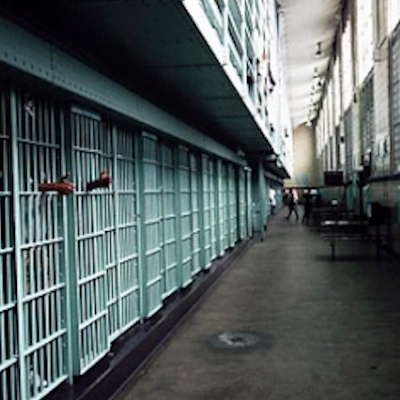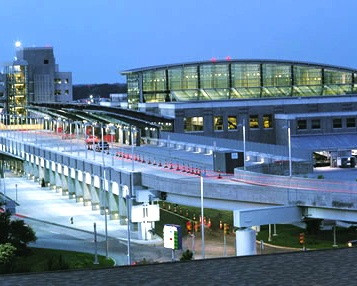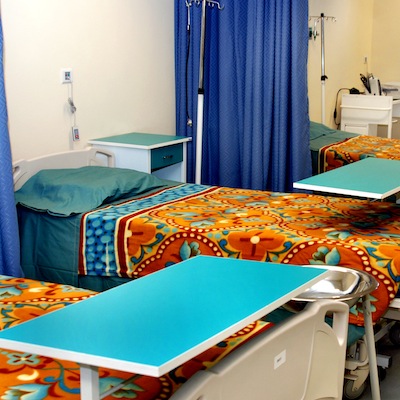Biggest Winners and Losers in Raimondo’s FY 18 Budget Proposal
Friday, January 20, 2017
Governor Gina Raimondo introduced her budget proposal for Fiscal Year 2018 on Thursday, which she said “focuses on building on our strong momentum and creating a better Rhode Island for working families and businesses.”
“The State’s economy continued to make progress in 2016. Rhode Island created 5,800 jobs last year, and the unemployment rate fell to its lowest point since the beginning of the Great Recession,” said Raimondo’s office on Thursday, when it introduced the budget proposal to the General Assembly that includes two years free tuition at a state college, an increase in the minimum wage, a reduction in the car tax, and more "tools" to incentivize private companies to come to Rhode Island.
SLIDES: Budget Winners and Losers BELOW
GET THE LATEST BREAKING NEWS HERE -- SIGN UP FOR GOLOCAL FREE DAILY EBLASTDespite claims about economic growth, Rhode Island got some sobering news in the recent jobs numbers announced on Thursday. The number of employed Rhode Island residents in December 2016 was 525,500, down 800 from the November number of 526,300, according to the RI Department of Labor and Training.
“The Governor’s budget provides for nearly three quarters of a billion dollars in deficits over the next 5 years,” said Pam Gencarella with taxpayer advocacy group OSTPA. ”In what world does any business-minded person believe that a prosperous future is in store for Rhode Islanders when our government actually makes plans to create an economic landscape that looks a lot like bankruptcy? More tax and spend policies, with no effort at reducing the cost of doing business in the state. As a matter of fact, the plan is to increase the cost of doing business by increasing the minimum wage. However, the hand-picked corporate giveaways continue unabated.”
Progressive organizations, however, were buoyed by elements of the budget proposal -- Rachel Flum with the RI Economic Progress Institute offered the following.
“While we will need to look at the full budget in more detail over the rest of the week, here are our initial take-aways — we are pleased the Governor’s budget includes a focus on working families, including increasing the minimum wage and wages for home health-aids and staff who care for people with disabilities,” said Flum. “These policies not only help people who are working hard earn wages more likely to support a family, but ensure these workers don't go across the border for similar jobs that pay better wages. We are also glad to see the investment in child care and early learning and the focus on ensuring more Rhode Islanders can complete college or a certificate program. What's missing, however, is an investment in a group of the workers of today - the thousands of adults who are on waiting lists to improve their English language or basic skills.”
And while the focus on the reduction (or elimination) of the car tax has been mainly on savings to owners, Flum pointed out another side.
“As the state focuses on the car tax, we are disappointed to see that this budget does not provide relief for the lowest income Rhode Islanders who cannot afford a car and we have concerns about the impact this proposal will have on the erosion of state revenue,” said Flum. “We are also disappointed to see that this budget does not offer continued support for the poorest seniors and people with disabilities through the maintenance of the no-fare bus pass.”
Taking Issue with the Budget
Among those not pleased with the Governor's proposal included the Hospital Association of Rhode Island, who sent a blistering statement out after the budget release on Thursday:
The Hospital Association of Rhode Island and its members are disappointed the proposed budget includes hospital payment cuts. We will continue to work with the General Assembly and Administration to find lasting solutions that address state fiscal problems while ensuring a financially stable healthcare system.
Hospitals provide nearly $7 billion in economic impact to our state. Elected officials must recognize hospitals are critical to a strong, healthy and stable Rhode Island. We urge them to make the appropriate investments to ensure the safety net is protected for Rhode Island patients.
The Rhode Island Center for Freedom and Prosperity, which held a “Prosperity Forum” at Bryant University this week that they say “suggests sharp contrast to the Governor’s State of the State” (read here), weighed in on the budget.
"When our state ranks 48th in family prosperity and dead last in business climate, a 'no broad-based tax increase' strategy simply is not good enough! The new mandates and penalties on businesses only rubs salt in the wound,” said Center CEO Mike Stenhouse. “More taxes and handout spending policies are exactly the wrong approach; especially corporate tax credits, which do nothing to help the average family and business. Where is the bold action? The lack of vision and the acceptance of our dismal status quo is stunning."
SLIDES: Winners, Losers, and Ties -- FY18 Budget Proposal
Related Slideshow: Winners and Losers in Raimondo’s FY18 Budget Proposal
Related Articles
- Elorza’s Budget Avoids Facing Fiscal Realities for Providence
- Elorza’s Budget Hits Providence Homeowners, Gives Relief to Car Owners
- Moore: Elorza’s Budget Doesn’t Match His Rhetoric
- Riley: RI Pension Shortfall Far Outweighs Budget Surplus
- Sides Spar After Prov. City Council Announces Tax Cuts in Upcoming Budget
- Providence Budget at Risk Due to Fire, Questions Over Tax Base
- Biggest Winners and Losers in Raimondo’s FY17 Budget Proposal
- 2017 Budget Bill Approved & Patent Troll Legislation Passed: This Week at the State House
- Moore: House Budget Punishes Charter School Success
- House Minority Caucus Rips Democratic Budget
- NEW: Raimondo Submits FY18 Budget, Banks on Collecting $30 Million from Internet Sales Tax
- Raimondo Proposes More Than Half Billion Dollars in Bonds in Budget Proposal
- New Budget and Fantasy Sports Legislation: This Week at The State House
- Herb Weiss: Obama’s Budget DOA, Thanks to GOP Gridlock
- RI Center for Freedom & Prosperity Blasts Proposed 2017 RI Budget
- Winners and Losers: RI Fiscal Year 2017 House Finance Budget
- Efforts to Grow RI’s Renewable Energy Rescued from Ill-Fated Budget Article with New Bill
- Surprise Last Minute Changes in RI House Budget for FY17
- Providence City Council Gives Final Approval to FY17 Budget
- The Budget Bill & Ethics Reform: This Week at the State House
- Elorza Miscalculates, More Budget and Firefighter Chaos
- Speaker Mattiello Withdraws Controversial Budget Article
- Mayor’s Office Salaries Up $300K as Providence Budget Gets First Passage
- Community Service Grants, Charter School Funding Scrutinized at RI House Budget Briefing






















